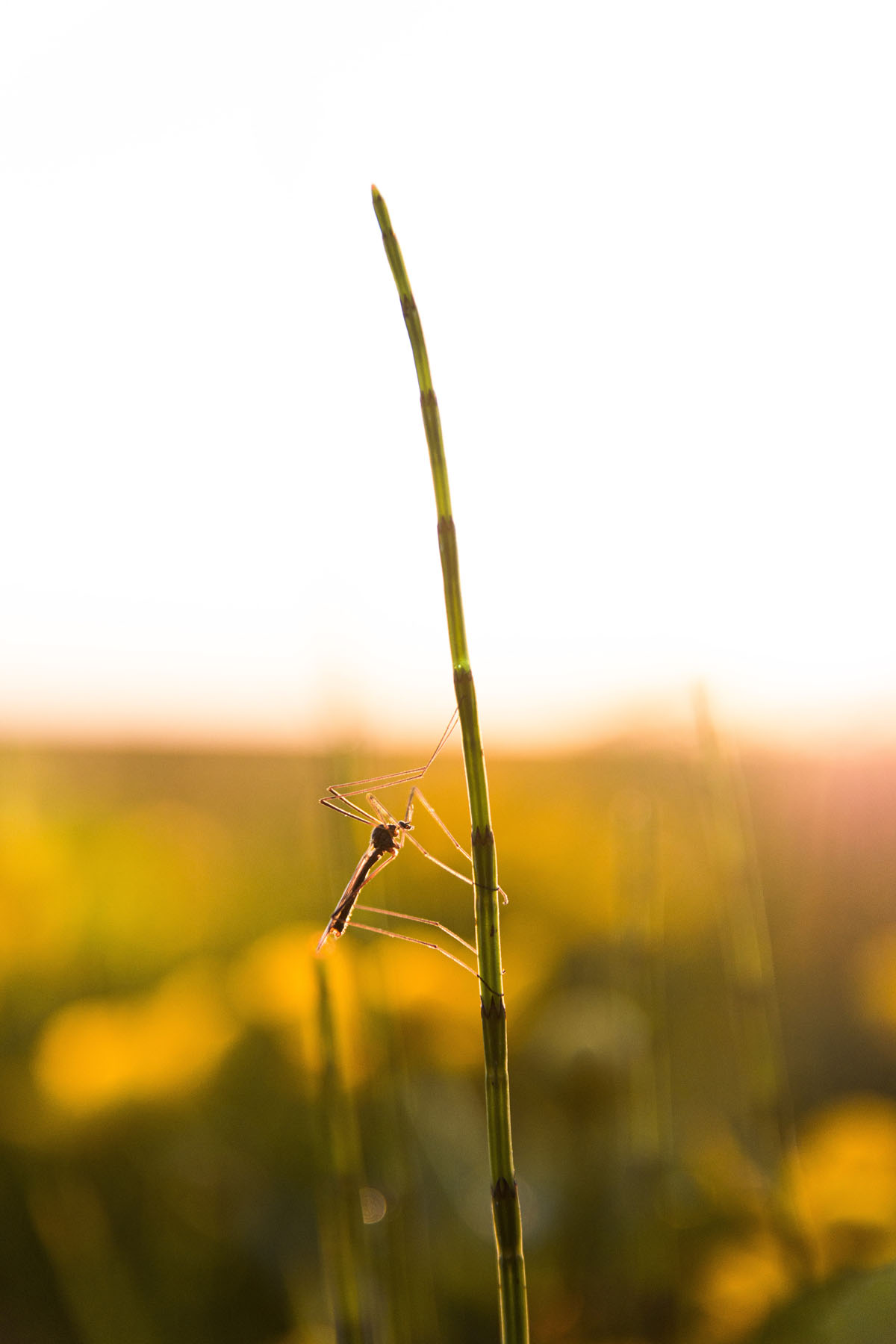 Pitbull has nothing to do with this story except that he’s from Florida
Pitbull has nothing to do with this story except that he’s from Florida
When I first read the title to this story I was like “oh hell no,” but then I watched an interview with one of the scientists behind the initiative. It sounds like solid science, it’s been tested and peer-reviewed and it’s even been done in Brazil with a significant reduction in this type of harmful mosquito. The background is that a species of mosquito called Aedes aegypti spreads Zika, heartworm in pets, dengue fever and yellow fever. That species makes up just 4% of the mosquito population and is responsible for virtually all mosquito to human disease transmission. This mosquito is proliferating in Florida. To control the population, they’re releasing 144,000 genetically modified male mosquitoes in the Florida Keys. Male mosquitoes don’t bite and these particular mosquitoes only create male offspring. When they mate with females the female offspring won’t survive, thus reducing this species hopefully. Here’s more on this from NBC news and I’ve embedded a video from The Today show below explaining it.
Florida will begin releasing genetically modified mosquitoes this week as part of its efforts to control one of the disease-spreading species of the biting insect.
The state will release almost 144,000 nonbiting male mosquitoes in the coming weeks engineered by the British firm Oxitec that are meant to mate with biting females, with any resulting female offspring unable to survive.
The project was approved after years of public comment and official review.
“As we are seeing development of resistance to some of our current control methods, we are in need of new tools to combat this mosquito,” Andrea Leal, executive director of the Florida Keys Mosquito Control District said in a press release.
The project is meant to control the population of the Aedes aegypti mosquito, which can spread dengue fever, Zika virus and yellow fever, as well as heartworm to pets and animals.
“The Aedes aegypti mosquito makes up about 4 percent of the mosquito population in the Keys but is responsible for virtually all mosquito-borne diseases transsmitted to humans,” the mosquito control district said.
The project was approved by the Environmental Protection Agency and an advisory board of the Centers for Disease Control and Prevention, as well as the Florida Department of Agriculture and Consumer Services.
I’m really ok with this. I know anti-GMO people and some environmentalists are against it, but The EPA approved it and it sounds like a proven and smart approach to controlling this mosquito. I can’t imagine how stressful it must be to be pregnant in one of the areas with these type of mosquito. I would be dousing myself in bug spray every day. On the other hand it also sounds like the start of a scifi movie. If we’ve learned anything over the past year it’s that scifi movies usually get it wrong though. The scientists are often the heroes and everyday people and politicians are the ones dooming us.
I do have some questions though. Mosquitoes are part of the food chain and while I hate them so much how can they make sure these mosquitoes don’t decimate the “good” mosquitoes too? I tried to google “do different types of mosquito species mate” and only found a scientific article about it that I think said it’s rare.
Here’s that Today Show segment:
photos credit: Avalon.red, Theodor Vasile on Unsplash and Votsis Panagiotis on Pexels













I got itchy just reading this article.
I’m 100% okay with this, but does anyone remember the movie “Mimic”…
LOL, the caption under Pitbull made me laugh
Same!! Just here for the pit bull comment!!
thanks for making me go back and read it, LOL
Thanks! Mr. Worldwide lol
There are a couple dozen different species of mosquito in Florida’s Everglades alone, I don’t think we need to worry about losing the natural mosquito population.
I hope that’s the case. I found myself wondering if it would negatively impact the bat population, which dines primarily on mosquitoes.
It sounds like it has potential to do a lot of good. I hope it works how scientists think it’ll work! I don’t want the follow up article next year to be that we’re releasing 100k mutant spiders to eat the super-mosquitoes we created…
+1.
Good. There’s a lot of standing water especially during the summer months, which is a breeding ground for mosquitoes. We’ve had dengue fever as recently as 2019. Tropical parasitic diseases are a far more serious threat than people realize, so I am perfectly happy to get rid of some mosquitoes. I’m sure there will still be plenty to splat on my windshield.
Pre-pandemic is went to Singapore. I sprayed all sorts of mosquito repellant, but didn’t see a single one during my 4 days there. I finally asked a cab driver, and they have been releasing the engineered mosquitos for years to control the population. It’s pretty cool technology and has been used in Asia for years.
Did you enjoy Singapore? It’s on my travel bucket list once travel is ok again and I always like to know if people liked it!
My husband contracted Denguy Fever over a trip to The Keys during the Christmas holiday’s a few years back. At first no one knew what it was and thought it was malaria but we hadn’t been to a climate that would support such a diagnosis. He was really sick (temp as high as 105) chills and then fever. He lost 20 pounds in about 8 days. Finally after using really strong antibiotics and thankfully him being strong he got over it. He was really sick for about 2 weeks before he started to feel better. I hope that this works as no one should have to go through what he did. I know that Denguy and Zeka are two of the illnesses they are hoping this release of sterilizing males will eradicate. Here’s to good luck
Jaysus..this sounds like the story line in Barb and Star go to Vista Del Mar. Haha.
I wonder if that’s what inspired them?
Ahhhhh……
The Cheeca Lodge is Heaven on Earth!
Anything that helps reduce the spread of diseases.
Glad they’re getting a handle on this as the mosquitos follow climate change toward the poles.
This is fascinating. Thank you, Celebitchy.
I, for one, welcome our new mosquito overlords.
This is fascinating. Glad they are being so careful about it. Hopefully they are working on something to get rid of the tick that spreads Lyme disease.
Although it may be too late for the red lady bug, the Asian lady bug needs to go, and the red ants that are adapting to colder weather and moving North.
Now, it’s time for me to get off my soapbox and go work on my bee/butterfly/hummingbird garden.
That waterside photo make me want to go snorkeling soooooo badly.
🙋♀️ Was in Brazil for the duration of my second pregnancy. Being paranoid about Zika the entire time definitely sucked.
“ Pitbull has nothing to do with this story except that he’s from Florida” LOLOL. You could have at least Photoshopped a mosquito onto his head.
Mosquitoes have been awful this year. I’ve got ME/CFS and don’t even go out, but enough have gotten inside that I’ve been bitten more than since when I was a kid camping in Michigan summers. I hope this destroys them.
I read an article at Forbes, which often has good science articles, about how the mosquitoes that bite people are not at all necessary to the food chain. There are non-biting mosquitoes to fill the gap, and the biting mosquitoes actually hurt the rest of the food chain that gives more protein to frogs and such, like certain flies.
We’ve been doing something similar with screwworm for decades. It’s a quietly successful, multinational project that’s been saving cattle and ranches within the Americas.
I’m not a mosquito expert by any means but inability to mate (temporal, spatial, and mechanical) is one thing that separates “species”.
In rare cases (in vitro, introduction of non-native) mating may result in offspring. Often these offspring are themselves infertile due to mismatching numbers of chromosomes (mules). Interspecies mating is typically within genera.
So NA mostly has anopheles and culex woth aedes being another different genera. There are then species within each genera.
So tldr – it’s very unlikely for Aedes to breed with any other genera, as most interspecies breeding is within genera and most NA mosquitoes are Culex or Anopheles.
Even if it happened the likelihood of the offspring being viable, let alone able to breed, is very very very small.
I love Pitbull!! lol